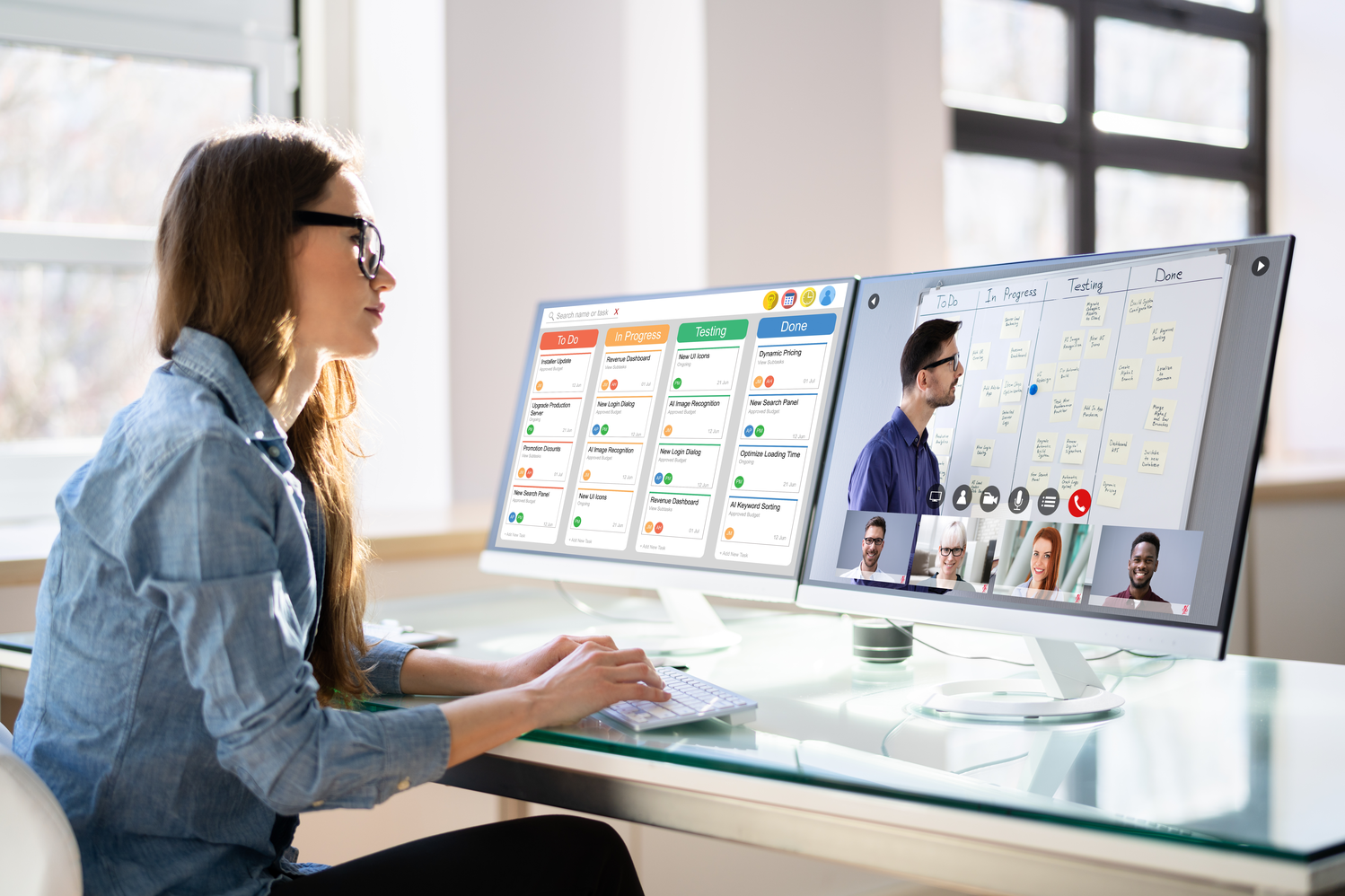In the pre-COVID years, businesses were going through major operating transformations like the growth of flex time, the transition to remote work, and a focus on the employee experience. In 2020, when COVID happened, business transformation accelerated as offices were locked down, and we were all sent home.
Today, as we slowly emerge from the past two years, companies are adopting a hybrid work model that is a mixture of remote and office work. Rather than returning to the old model, structured around a desk in an office, it creates a flexible schedule where an employee’s time is split between working from home and coming into the office.
This new hybrid model comes with a host of benefits. They include more access to top talent, happier employees, increased productivity, and improved innovation.
Technologies to Support the Hybrid Model
As the hybrid workplace model gains acceptance, organizations must ensure that they have the right tools and technologies to keep team members productive when working from home. Here are some key technologies you need to consider when transitioning to a hybrid model:
- Communications Tools – Your team has the option to come into the office to collaborate, however, they are still going to need tools to work with colleagues remotely. Tools like instant messaging and video, software like Zoom and Microsoft Teams can boost collaboration and communications.
- Project Management Technology – To keep your projects moving forward, your team needs visibility into projects, wherever they are working from. Team members should be able to see deliverables, priorities, and the work needed to meet project goals.
- Unified Communications – UC offers your employees a single platform where they can access everything needed to do their jobs. UC is the consolidation of different cloud-based communication tools like video conferencing, VoIP, instant messaging, and file sharing.
- Physical Hardware – Employees working remotely should not be using their personal computers. This is a significant security issue for your organization and can mean that they do not have access to the tools they need. Invest in hardware for each employee so your IT team can have control over technology and security.
Are considering a hybrid business model? Make sure you have the technology and tools in place to keep your team motivated, productive, and connected.
About ACT
Applied Computer Technologies (ACT) is a full-service IT provider, specializing in Reinsurance and Finance. Services include Cloud Services, IT Services and Support, Microsoft 365 and Azure Services, Business Continuity, Telephony and Virtual CIO Services. ACT has locations in Bermuda, Cayman Islands and Canada, with customers worldwide.


